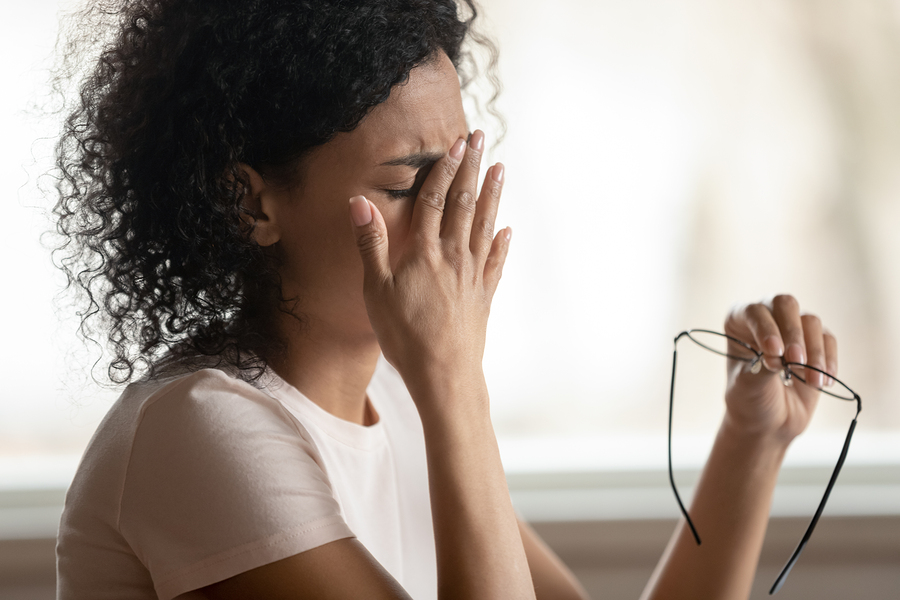“Balance” is a bit of a buzzword these days. In some areas, achieving balance can seem a little elusive. For example, I’m constantly hearing about the importance of maintaining a “work-life balance”. This seems like a reasonable, even healthy idea, but in our modern world, work and life bleed together in a million little ways. We open up our smartphones and check our email while we’re on vacation or at home with our families. But we may also love our work, and find ways to do the things that bring us joy in our professional lives. For most of us, there are stressors as well as positive elements in both our work lives and our personal lives– it’s not like there’s a straightforward scale to balance!
Still, the longer I live, and the more patients I work with who are stressed out, exhausted, and battling all kinds of persistent health issues, the more I understand what balance really means, and why it’s so important, even if it’s not always something you can see.
Within the context of our complex lives, balance may not always be easy to understand, but within the body, it is somewhat less ambiguous. That is, if you know what to look for!
Our physical, mental, and emotional health relies on balance within the body. This includes hormonal balance, the balance of neurotransmitters, a balanced intake of nutrients, and a diverse gut microbiome, to name a few.
One of the most important areas of balance for our hormonal and overall health is the ratio between the “stress hormone” cortisol, and the powerful “mother” hormone DHEA.
The ratio between these two hormones might seem like kind of a technical thing to dive into, but I hope you’ll stay with me, because in so many ways it’s the key to unlocking hormonal health, healing adrenal fatigue, having more energy, losing stubborn weight, and aging gracefully.
You Can’t Balance Cortisol Without DHEA
If you google “DHEA and cortisol ratio”, you’ll come across all kinds of scientific papers and articles in medical journals getting into granular detail about the importance of this ratio for one specific function. The DHEA to cortisol ratio affects so many different functions, and I’m not going to get into too much detail about all of them… I want to focus on how this actually relates to you!
Here’s the first thing that’s important to know: DHEA and cortisol are both produced by the adrenal glands.
Cortisol’s main job is responding to stress, which among other things means suppressing immune function, reducing inflammation, and raising blood sugar levels: all helpful during a crisis. As you probably know, if you’ve read about cortisol or adrenal fatigue before, the problem isn’t with cortisol itself, it’s with levels of cortisol that are dysregulated: either levels that are consistently high because of chronic stress, or levels that are too low because of a faulty stress response system (which tends to happen in the later stages of adrenal fatigue).
In a lot of ways, DHEA functions as cortisol’s opposite (which is why it’s so important for them to stay in balance). DHEA is sometimes referred to as the “mother of all hormones”, because it converts to essential sex hormones like testosterone and estrogen. Low levels of DHEA have been linked to all kinds of chronic illnesses (including diabetes, hypothyroidism, depression, cancer, and cardiovascular disease), and boosting DHEA comes with many powerful anti-aging and health-promoting effects.
Both are essential, both are powerful, and because they generally function in opposing ways, it’s really important for them to stay in balance.
A healthy ratio between these two hormones is important for immune system function, detoxification, overall hormone balance, the control of inflammation, cognition and memory, thyroid function, and metabolism… to name a few.
An unhealthy ratio may lead to further hormonal imbalance, leaky gut and other gut issues, autoimmunity, food sensitivities, neurological conditions, stubborn weight gain, and of course, adrenal fatigue.
The DHEA to cortisol balance is key when it comes to tackling adrenal fatigue! DHEA is something I don’t see mentioned nearly enough when people write and talk about adrenal fatigue. The focus is usually on cortisol, the stress hormone, because too-high or too-low levels of cortisol are most closely associated with an impaired stress response. But remember, cortisol and DHEA have opposing functions, and are supposed to balance each other out. You really can’t “balance” cortisol levels without paying attention to its opposite, DHEA!
DHEA and cortisol both require cholesterol in order to be produced. If something is off due to stress, the precursors that cholesterol uses to eventually make DHEA might instead be recruited to make more cortisol.
How Do You Know If Your DHEA to Cortisol Ratio is Balanced?
If you want to test your levels of DHEA and cortisol, you can work with a functional medicine practitioner, who will likely use saliva testing in order to measure levels of both hormones, typically with multiple collections over a period of time so that they can really get an understanding of what’s going on with your hormones and your stress response over the course of a day.
Almost all of the women I work with have some degree of adrenal fatigue, which generally means there’s an imbalance in the cortisol to DHEA ratio.
I always make sure to look into how we can boost DHEA (there are a lot of natural ways to do this, but sometimes moderate supplementation is required in the beginning) and begin to tackle the underlying causes of adrenal dysfunction that have led to this imbalance.
Testing can be really helpful in order to gain specific insights into exactly what’s going on with the stress response and with a woman’s hormones, what stage of adrenal fatigue they may be at, and how severe the imbalance is, so that we know exactly how to combat it.
What Causes an Imbalanced DHEA to Cortisol Ratio?
To make things really simple, a person’s DHEA to cortisol ratio is basically dependant on how much stress their body is under, and how long that stress has been going on. It’s actually normal for levels of DHEA and cortisol to fluctuate a little bit. For example, in a short-term stressful situation, cortisol levels will be higher, but when the stress has been handled, levels should be brought back to balance. Of course, this isn’t the case in situations of chronic or prolonged stress (which is unfortunately the “norm” these days!).
There’s another major factor that comes into play here, which is that DHEA levels naturally decline as we age, along with levels of a number of other hormones, like estrogen. This is normal to some extent, but if we’re already dealing with too much cortisol and a ratio that’s off-balance– and especially because stress tends to be high in our 40s and 50s when we are already experiencing a dramatic drop in DHEA– it can lead to a greater likelihood for a problematic imbalance during this stage of life.
How to Balance DHEA and Cortisol
Balancing DHEA and cortisol involves the interplay of a number of different dietary and lifestyle modifications that are aimed towards doing two main things: reducing exposure to stress and stressors (which can be environmental, emotional, physiological, etc), and boosting levels of DHEA.
I sometimes recommend DHEA supplements for my patients in the early stages of healing, when they’re so off-balance and their bodies are so worn out that they need a bit of help even getting to a place where they can make bigger, longer lasting, more sustainable changes. DHEA supplementation should be done under the supervision of a qualified practitioner.
The great news is that there are also a whole bunch of natural ways to boost DHEA levels, and they really work! And remember how I said there were two components to balancing DHEA and cortisol: reducing stressors, and boosting DHEA? As it happens, many of the most effective strategies for boosting DHEA are methods of reducing stress, and vice versa.
Strategies for Balancing the DHEA and Cortisol Ratio
- Reduce inflammatory foods. Sugar, soda, gluten, dairy, and processed and packaged foods are stressors for your body in the same way that being stuck in a traffic jam is a stressor.
- Season your foods with anti-inflammatory herbs. Adding powerful, anti-inflammatory herbs like turmeric, ginger, and rosemary to your food is a simple and delicious way to work towards healthy DHEA levels. Herbal teas are another way to indulge.
- Make sleep a priority. 8 hours of quality sleep every night will do wonders for your stress response and hormonal balance. I know it’s easier said than done, but do what you can to make sleep a non-negotiable.
- Look into your medications. Some prescription medications can contribute to adrenal fatigue and hormonal imbalance. Don’t discontinue any medications without first speaking with your doctor, but explore where they may be playing a role.
- Address any gut issues or nutritional deficiencies. Gut issues, like leaky gut or dysbiosis, are major contributors to adrenal fatigue and an impaired stress response, and unless they are addressed, it will be difficult to heal and feel like your best. Similarly, if you’re deficient in any nutrients, that needs to be addressed in order to recover. Work with your functional medicine practitioner to help you uncover any underlying gut issues or nutritional deficiencies.
- Make time for self-care. Reducing stress, of course, involves making time for yourself and for whichever activities bring you joy and peace. This one really is a non-negotiable.
- Consider supplementation. Certain nutrients including vitamins C, D, B5, and B6, and magnesium, are especially important for DHEA production and hormonal balance. If you are deficient in these or any other nutrients, supplementation may be helpful.
- Eat plenty of healthy fats. Healthy fats like avocado, nuts, seeds, olive oil, and coconut oil are necessary for the creation of cholesterol, which your body needs in order to make DHEA. Make sure you are consuming enough healthy fats, and consider supplementation with high quality Omega 3 fish oil supplements if you need a bit of an extra boost.
- Get regular, moderate exercise. Healthy exercise is a great way to reduce inflammation, boost DHEA levels, and balance your hormones. Bonus points if you exercise outdoors, because fresh air helps a lot too!
- Try adaptogenic herbs. Adaptogenic herbs like rhodiola, eleuthero, and ginseng, which help to regulate the stress response, are helpful for many people.
With these strategies in your toolbox, you can reduce your exposure to stress and its effects, boost your DHEA levels in order to achieve a balanced DHEA to cortisol ratio, balance your hormones, and heal from adrenal fatigue! Achieving and maintaining a balanced ratio of DHEA to cortisol has so many far-reaching benefits, from enhanced metabolism and healthy weight loss to anti-aging effects and an improved mood. And as far as balance in your life? Well, I think they go hand-in-hand.







